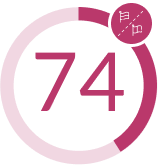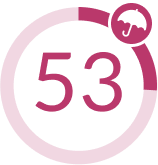
The Insurance Ombusdman has been implemented by the Association of insurance and reinsurance companies (ACA) and the Luxembourg Union of Consumers (ULC) to find extrajudicial solutions in insurance litigation.
Valérie Tollet – Insurance Ombusdman
The Ombudsman has as mission to process applications of extra-judicial settlement of insurance litigations between Luxembourg-based insurance companies and consumers residing in Luxembourg or in another State of the European Union.
After reviewing the complaint, the Ombudsman addresses a letter of motivation to the concerned parties. When the Ombudsman notes that the positions of the parties are irreconcilable, they inform the parties in writing. The Ombudsman can also bring together the parties in litigation to facilitate a solution , to find a respective amicable resolution or to propose a solution himself. The conclusions or proposals of the Ombudsman’s solution are non-binding on the parties concerned.
The decisions of the Ombudsman are not made public. The names of the parties involved are not disclosed to third persons. They are based on the judicial and legal provisions applicable and they can also take into account components of equity.
Recourse to the Ombudsman is open to consumers residing in Luxembourg or in another State of the European Union for litigation concerning (life or non-life) insurance contracts concluded with Luxembourg-based insurance companies.
The Ombudsman may refuse to process a case referred to him on the grounds
that:
The Ombudsman works in joint form “ULC / ACA”.
Each party shall designate a delegate, as well as a substitute.
The delegate of ACA is Mrs Valérie TOLLET, Member of ACA Executive Committee.
The delegate of the ULC is Mr André MARMANN.
The two aforementioned delegates are appointed for an unlimited period.
They are held to a strict duty of confidentiality.
ACA and ULC shall take the necessary measures to ensure that the treatment of personal data fully respects the legislation in this area.
ACA and ULC delegates meet requirements of “skills, independence and impartiality” as established by the legislation on extra-judicial settlement of consumer litigations. They cannot be relieved of their duties without just cause and they cannot receive instructions from the parties.
The delegates are allowed to be assisted if necessary by experts (in technical matters), to hear the concerned parties and even third parties and generally to take all information they need.
The parties involved have the right to be represented or assisted by a third party (e.g. a lawyer) at all stages of the procedure.
They have the opportunity to withdraw from the procedure at any time, e.g. when they are dissatisfied with the performance or operations of the procedure.
When the Ombudsman proposes a solution to resolve the litigation, the parties concerned must be informed by the Ombudsman:
The parties concerned have a reasonable period of reflection set at 1 month before indicating that they accept the solution proposed by the mediator or an amicable agreement (the period running from the date of receipt of the related letter from the Ombudsman).
The proceedings before the Ombudsman are free.
Referral to the Ombudsman can be via :
You can fill in the form in one of the official languages of Luxembourg (English is also accepted).
The proceedings are also conducted in these languages.
Each party has the option, within a reasonable period of 2 weeks, to freely express their points of view and their arguments; to receive from the Ombudsman the arguments, evidence, documents and exhibits produced by the other party as well as any advice given by experts.
Legal limitation periods are suspended from the date of referral to the Ombudsman, provided that the application for mediation is complete. Suspension runs until the day when the Ombudsman shall communicate to the parties:
Suspension also ends on the date on which one of the parties notifies the other party of its decision to settle the dispute out-of-court.
Reasoned conclusions made by the Ombudsman, as well as solutions proposed by him or amicable agreements cannot be used as evidence in court, unless otherwise agreed by all parties concerned.
The parties involved in an out-of-court settlement request must provide the Ombudsman with all relevant documents and information relating to the request..
Within three weeks following receipt of the complete application, the Ombudsman, when in accordance with the rules of procedure is unable to deal with a submitted dispute , provides the parties with a detailed explanation in writing of the reasons why he has not agreed to deal with the dispute.
The Ombudsman sends, within 3 weeks, written confirmation to the applicant when an application is considered admissable and complete.
Upon obtaining all documents and information required on the part of the professional for the correct examination of the case, the Ombudsman informs the parties of the receipt of the complete application and the date of receipt.
Within a period of 90 days from the date of receipt of the complete application, the Ombudsman shall communicate the outcome of the out-of-court dispute resolution to the parties and respectively sends them a letter with reasoned conclusions and a proposed solution.
The Ombudsman may, if deemed useful, extend the 90 days deadline in case of highly complex disputes. The parties will be informed of any extension of this deadline and of the approximate time scheduled for the resolution of the dispute.
Do you meet the various criteria for mediation? We then suggest that you move on to the next step by referring the matter for mediation:

Litiges
transfrontaliers
(-17 compared to 2022)

Litiges
nationaux
(+29 compared to 2022)

Litiges
branche Vie
(-4 compared to 2022)

Litiges
branche Non-Vie
(+16 compared to 2022)
The Ombudsman may be called upon after the claimant has attempted to contact the other party to discuss the claim and to seek, as a first step, to resolve the matter directly with that party.
The Ombudsman’s mission is to deal with requests for out-of-court settlement of insurance disputes between insurance companies established in Luxembourg and consumers residing in Luxembourg or in another State of the European Union. It is therefore not competent to handle disputes with a foreign insurer. In such a situation, please contact the competent mediation body of the country concerned.
The mediator may refuse to deal with a particular dispute referred to him or her on the grounds that :
The European Commission provides a website for European consumers that lists the different dispute resolution bodies. You can use it to lodge a complaint about goods or services you have purchased over the internet and find a neutral third party (a “dispute resolution body”) that will deal with the dispute.
The law of February 17, 2016 inserts a Book 4 in the Consumer Code relating to the out-of-court settlement of consumer disputes and establishes the Consumer Ombudsman.
This is a transposition into national law of Directive 2013/11/EU on the out-of-court settlement of consumer disputes, which requires Member States to set up “out-of-court entities for the amicable settlement of consumer disputes between a trader established on its territory and a consumer residing in the European Union”.
The law details the process of out-of-court settlement of consumer disputes as well as the functioning and status of the Consumer Ombudsman and other entities that offer to settle a consumer dispute through an out-of-court procedure.